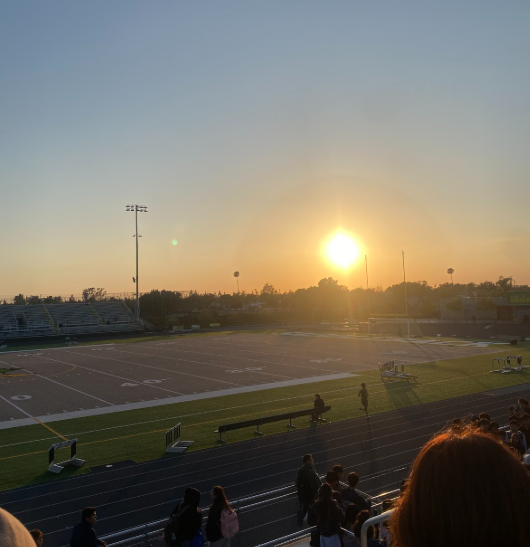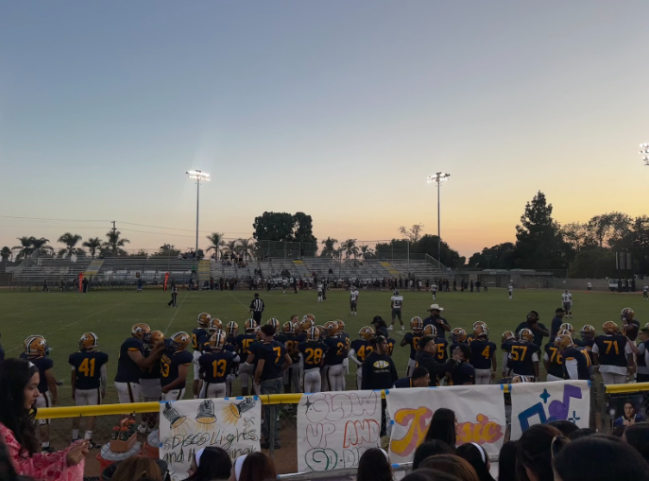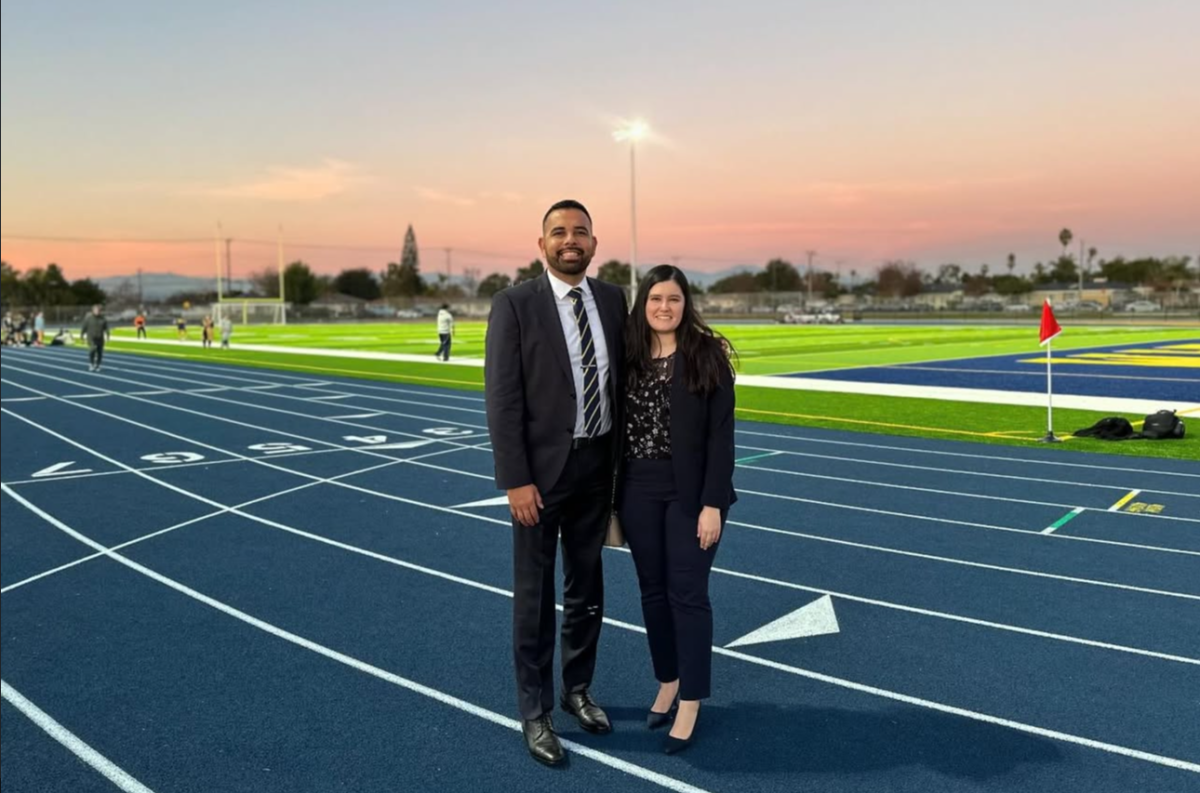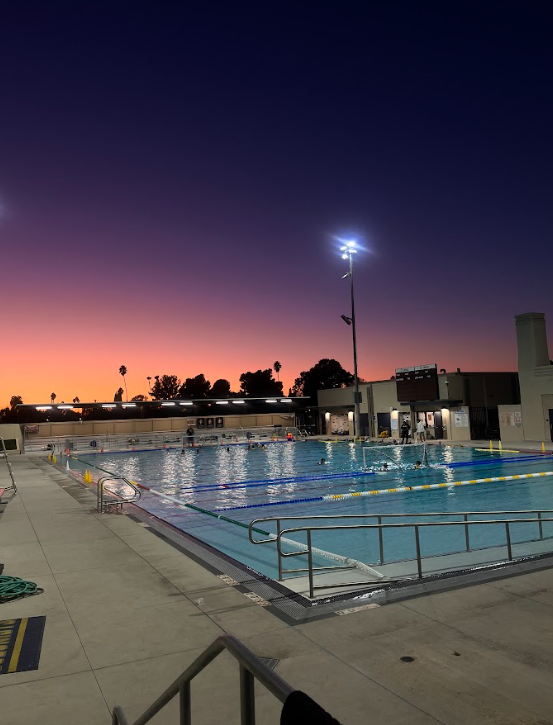It might be the fall season for the athletes at Anaheim High School, but the summer heat is scorching through the scores. Naturally, one would expect June and July to be the hottest months of the year, however it’s become apparent that this is no longer the case. Reportedly, this past month has seen temperatures reaching record highs, averagely passing the 90o degree percentile. This has made it increasingly difficult for our athletes to practice and compete. It’s even been considered a safety hazard for some groups to train at all. Let’s hear some insight from the athletes themselves!
Renee Candela, who runs varsity girls cross country shares her experience having to practice in the heat. She stated “heat waves have affected me mentally in the aspect that it has made me less motivated, and then physically it’s taken a toll on me because I’m always feeling under the weather.” In general, she explains how recent heatwaves have made training more grueling to participate in. She also shares that because of extreme heat “I feel very dehydrated, so I’ll feel nauseous and dizzy” She attempts to constantly drink water to overcome this.
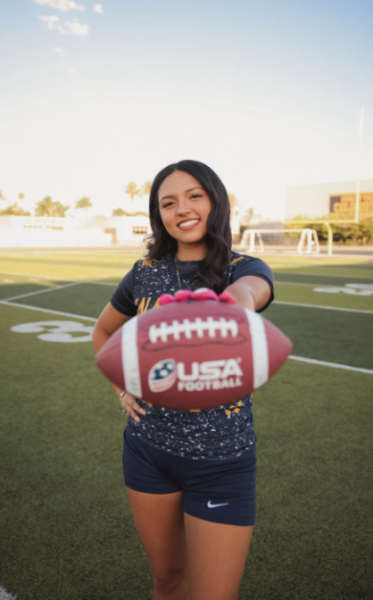
Flag football star Ashley Montes answered some of our questions as well, speaking on behalf of her whole team. In regards to mentality, she states “we’re kind of discouraged and not very energetic because we’re thinking about how hot it’s going to be.” When asked about her team’s physical state when training, she replied “we are super exhausted, very sluggish on the field, we don’t have our usual energy.” She also mentioned the loss of focus during high heat competitions, and her concern for future seasons. This interaction led to a distressing thought, how are athletes going to train when the climate continues to increase?
Furthermore, Alexa Reyes, co-captain of the girls cross country team agrees that this is an increasing issue for athletes in her sport. “Physically I feel like I’m more tired and like I can’t push myself as much as I typically can.” Verifying the harsh impact climate change has caused. She also expresses that “I think over the years it’s definitely going to get hotter and it might make it more tough and difficult for seasons, like for future seasons because the heat’s just going to go up and it’s just going to make it harder for runners.”
However, the athletes aren’t the only ones that have something to say. Casey Lang, cross country coach, tells us “if it’s excessive heat and humidity, I have to cancel practice or I take the girls to the pool where I can reduce the heat factor.” One of the waterpolo coaches, Randy Butler, explained that he has a cooler for the boys to “drink water and stay hydrated”. Nevertheless, all coaches interviewed agreed that climate change will have a severe impact on sports competitions and training for all types of future athletes.
Ultimately, the impact is clear, and the risks high school sports face are no longer simple incidents, but a warning for a warming world. With its current rate, protecting our athletes will require more than extra water breaks and adjusting schedules. By raising awareness, advocating for sustainable policies, and reducing our carbon footprint, we can do our part in fighting these changes. We can ensure that our athletes can thrive under cooler skies.
Aunque ya estamos en otoño en la Preparatoria Anaheim, el calor del verano sigue pasando factura. Junio y julio solían ser los meses más calurosos; sin embargo, se ha hecho evidente que ya no es así. El mes pasado se registraron temperaturas récord, con un promedio de más de 32 grados Celsius. Esto ha dificultado los entrenamientos y las competiciones, e incluso se considera un riesgo para la seguridad de algunos atletas. ¡Escuchemos sus opiniones!

Renee Candela, quien también es parte del equipo de varsity campo a través(cross country), comparte su experiencia al tener que practicar en el calor. Ella nos dice como “Las olas de calor me han afectado mentalmente en el sentido de que me han hecho sentir menos motivada, y físicamente han tenido un impacto en mí porque siempre me siento mal.” En general, explica cómo las recientes olas de calor han hecho que los entrenamientos sean más difíciles de soportar. También comparte que debido al calor extremo “me siento muy deshidratada, así que me siento con náuseas y mareada.” Para superar este problema, dice que trata de mantenerse hidratada y bebe agua constantemente.
La estrella del fútbol de bandera, Ashley Montes, también respondió algunas de nuestras preguntas, hablando en nombre de todo su equipo. Con respecto a la mentalidad, afirmó: “estamos un poco desanimadas y no muy enérgicas porque estamos pensando en lo caliente que va a estar.” Cuando se le preguntó sobre el estado físico de su equipo durante los entrenamientos, respondió: “estamos súper agotadas, muy lentas en el campo, no tenemos nuestra energía habitual.” También mencionó la pérdida de concentración durante las competencias en altas temperaturas y expresó su preocupación por las temporadas futuras. Esta conversación llevó a una reflexión inquietante: ¿cómo van a entrenar los atletas si el clima sigue aumentando?

Además, Alexa Reyes, co-capitana del equipo femenino de campo a través(cross country), coincide en que este es un problema cada vez mayor para las atletas de su deporte. “Físicamente siento que estoy más cansada y que no puedo esforzarme tanto como normalmente puedo.” Confirmando el fuerte impacto que el cambio climático ha causado. También expresa que “creo que con los años definitivamente va a hacer más calor y podría hacer que las temporadas sean más duras y difíciles, como para las futuras temporadas, porque el calor solo va a seguir aumentando y eso hará que sea más difícil para las corredoras.”
Sin embargo, los atletas no son los únicos que tienen algo que decir. Casey Lang, entrenador de campo a través(cross country), nos comenta “si hay un calor y una humedad excesivos, tengo que cancelar la práctica o llevo a las chicas a la piscina donde puedo reducir el factor del calor.” Uno de los entrenadores de waterpolo, Randy Butler, explicó que tiene una hielera para que los chicos “tomen agua y se mantengan hidratados.” No obstante, todos los entrenadores entrevistados coincidieron en que el cambio climático tendrá un impacto severo en las competencias deportivas y en el entrenamiento de todo tipo de atletas en el futuro.
En definitiva, el impacto es claro, y los riesgos que enfrentan los deportes escolares ya no son simples incidentes, sino una advertencia de un mundo en calentamiento. A este ritmo, proteger a nuestros atletas requerirá más que descansos adicionales para hidratarse y ajustes en los horarios. Al crear conciencia, abogar por políticas sostenibles y reducir nuestra huella de carbono, podemos hacer nuestra parte en la lucha contra estos cambios. Podemos asegurar que nuestros atletas prosperen bajo cielos más frescos.


